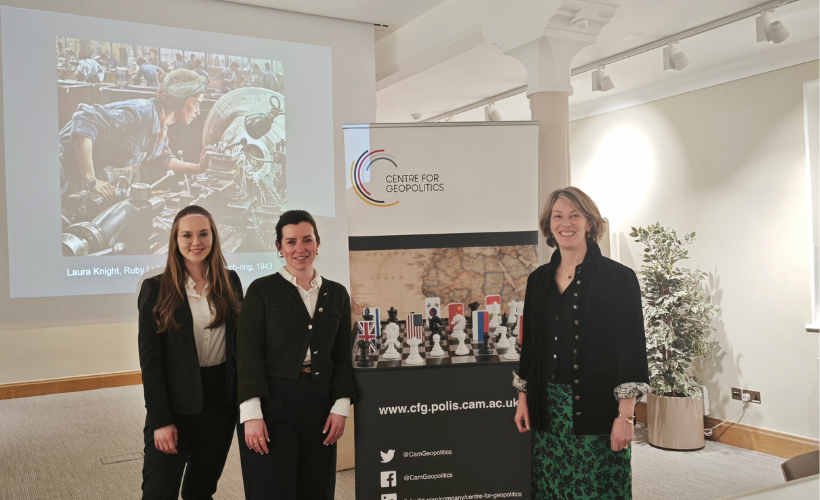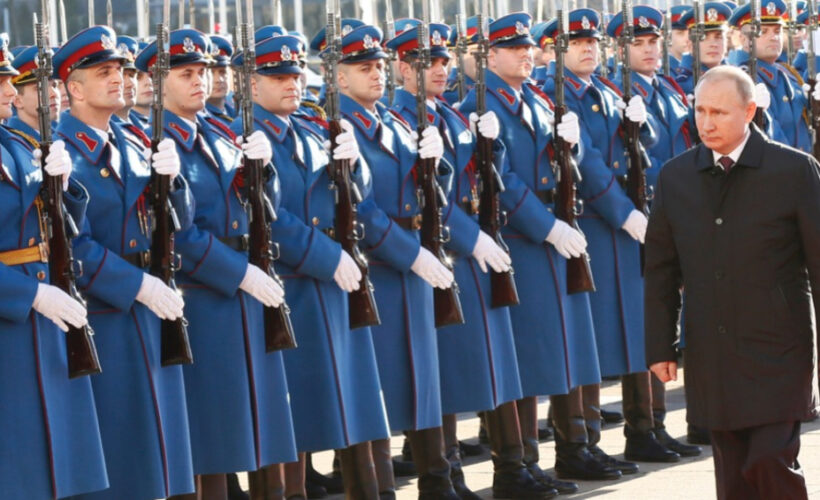27–29 March 2023, University of Oxford
This conference interrogates the diverse echoes of Christendom in contemporary political exceptionalism, nationalism and populism. Whether in the shape of the Russian World ideology, Christian civilisationalism, or religious conservatism in and beyond Europe, these echoes of Christendom may translate in new forms of intolerance, oppression, and even violence. At the same time, apparently progressive Christian movements and networks – such as those for international development or freedom of religion and belief – retain artifacts of Christendom in their political discourses and practices. These various modes of Christianism present a significant challenge to scholars from across Christian traditions: to deconstruct both confessional and secular appeals to Christian identity for political purposes, and to articulate political theological alternatives which can contain social and political tensions in a story about peaceful coexistence. Moreover, they need to do so in intra- and inter-religious conversation, and across political theological traditions.
Acknowledging that the dangers emanating from and similar to the Russian World ideology are not confined to the realm of Orthodoxy, this conference calls for an ecumenical effort to develop ‘Political Theologies after Christendom’ in the context of religious pluralism worldwide. Beyond the ambition of political and cultural relevance or the temptation to resort to a counter-cultural posture might lie a third way: a Christianity that stops thinking of ‘the other’ as ‘neighbour’ or ‘guest’ and which becomes ‘a neighbour’ itself – a Christianity that does not compare its experience with what Christianity may have been before ‘secularisation’ or ‘individualisation’ happened, but one that takes responsibility for common life as it takes shape in the here and now, and with an eye to the future. What has political theology got to offer? What kinds of reformations of ‘Christendom’ are emerging in Catholicism, Protestantism, Orthodoxy and in transnational Christian social movements? Is it possible for our political imaginations to move beyond the majority/minority binary? What are the most promising political and theological imaginaries of post-Christendom? Where do we go from here?
Papers and panel suggestions are invited from scholars in political theory, sociology, theology and religious studies, politics, history, anthropology, philosophy and law, and may refer to any of the categories below. Applications from early- and mid-career scholars are especially encouraged.
I Christendom and Christendoms: contemporary iterations and comparative regional cases (e.g. Russian World, Christian civilisationalism, far-right identitarianism), both established and countercultural
II From Moscow to the Midwest: tracing echoes of Christendom in transnational Christian social movements and networks
III Political theologies after Christendom: engaging interdisciplinary conversations, methods, and concepts; mapping the potential for future pathways in political theology
IV ‘Two Kingdoms’ after Christendom: the relationship between church and government
V The value of theologies ‘after’ major historical events (after the Gulag, after Auschwitz, after slavery, and perhaps now after Srebrenica and Bucha)
VI The politics and ethics of Christendom’s imperial expansion, violence and ‘holy’ war, including the memory of these and the question of collective guilt
VII Gender after Christendom: analysing and assessing populist appeals to hyper-traditional accounts of the family, including assumptions about gender, in the public square.
Please send a proposed paper title, short abstract (c.200 words) and short biography to marietta.vandertol@bsg.ox.ac.uk by 15 October 2022. Decisions will be released by 15 November 2022. Short conference briefs of ca. 2,000 words are due by 1 March 2023. The convenors intend to pursue collaborative publications after the conference. All submissions and papers should contain original work that has not been committed elsewhere.
Associated events
In anticipation of the conference, the University Church of St. Mary the Virgin (Church of England) have kindly offered to host an ecumenical choral service on the afternoon of Sunday 26 March 2023, at 3.30pm. They will also host a public lecture on the evening of Monday 27 March 2023, at 7.30pm. No sign-up is required for these events.
A college dinner will be hosted at New College on the evening of Tuesday 28 March 2023 at 7.30pm. The dinner will be included as an optional item at the moment of registration and is open to speakers and attendees of the conference.
Logistics and Covid-19
We intend to hold this year’s conference in person at New College, Oxford. Up to 30 rooms have been pre-booked at New College from 26 March 2023 for three nights, with priority given to speakers and attendees who are considered vulnerable to Covid-19.
Due to rapidly changing circumstances in the UK and elsewhere, the organisers reserve the right to postpone the conference up to 28 February 2023. Please bear this in mind if you decide to make travel arrangements at an earlier stage as there are no funds available to reimburse travel or accommodation costs in the event of cancellation. We recommend that those travelling to the conference ensure they have been fully vaccinated against Covid-19 and take out travel insurance as necessary.
Funding and embedding
This conference is generously funded by the Harold C. Smith Foundation, DAAD-Cambridge Research Hub for German Studies, and the Huffington Ecumenical Institute of Loyola Marymount University, and others. A limited number of subsidised rooms will be offered to speakers on the basis of need. Cost of travel will only be considered in exceptional circumstances and applicants must make a strong case that no other funding is available to them.
The conference is part of the project on Protestant Political Thought, hosted at the Blavatnik School of Government, Oxford (previously Centre for Geopolitics, University of Cambridge). This project features a series of workshops and conferences, many of which have led to collaborative publications, including in The Journal of the Bible and its Reception (2021); Religion, State, Society (forthcoming 2022); and the International Journal of Religion (2021).
For more information about the project, email Mariëtta van der Tol (marietta.vandertol@bsg. ox.ac.uk)







